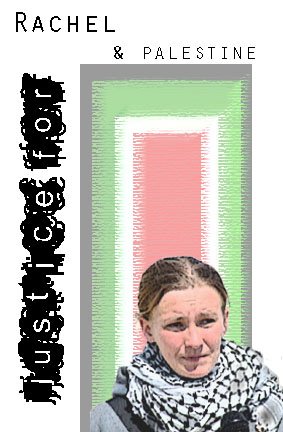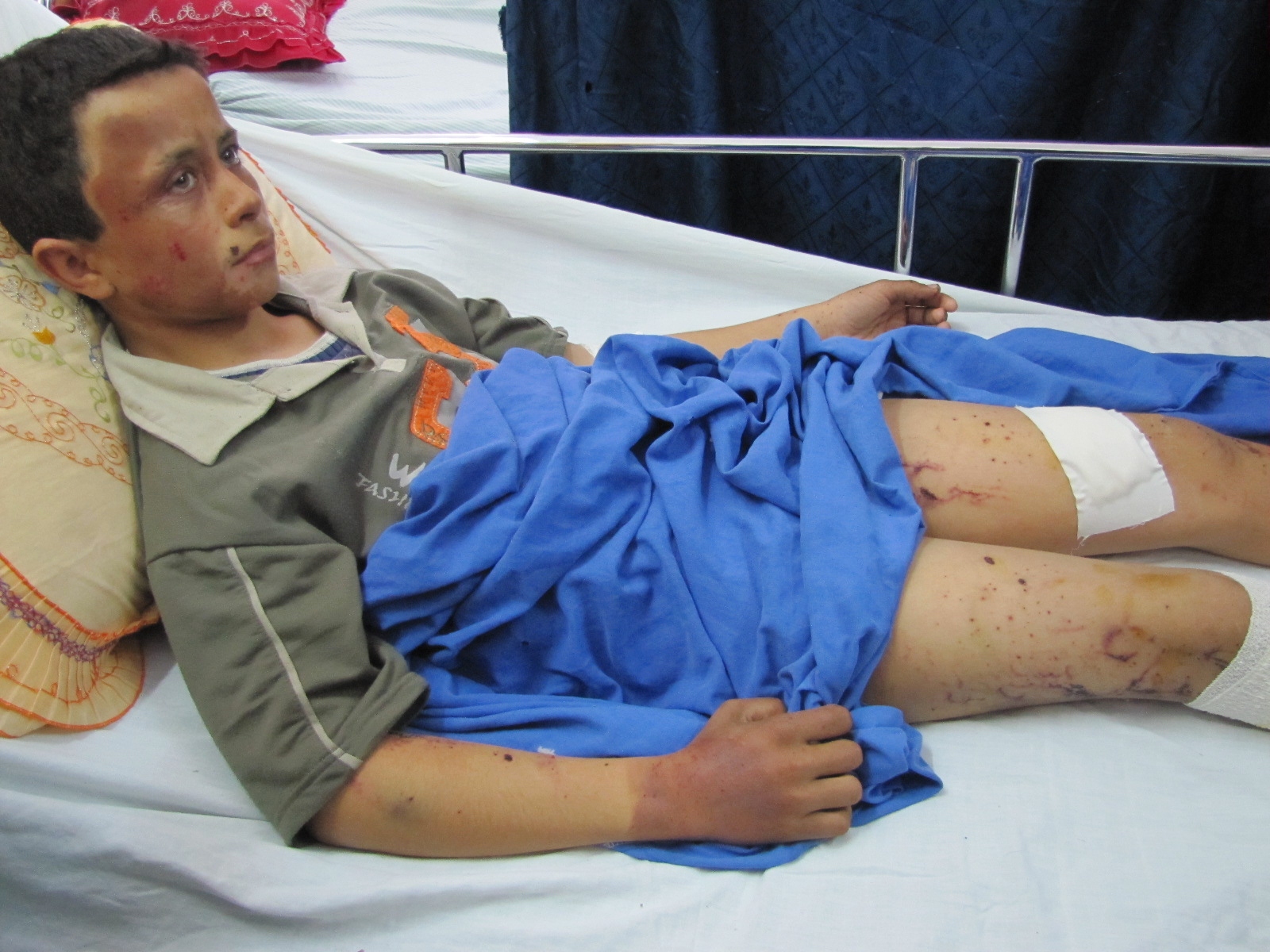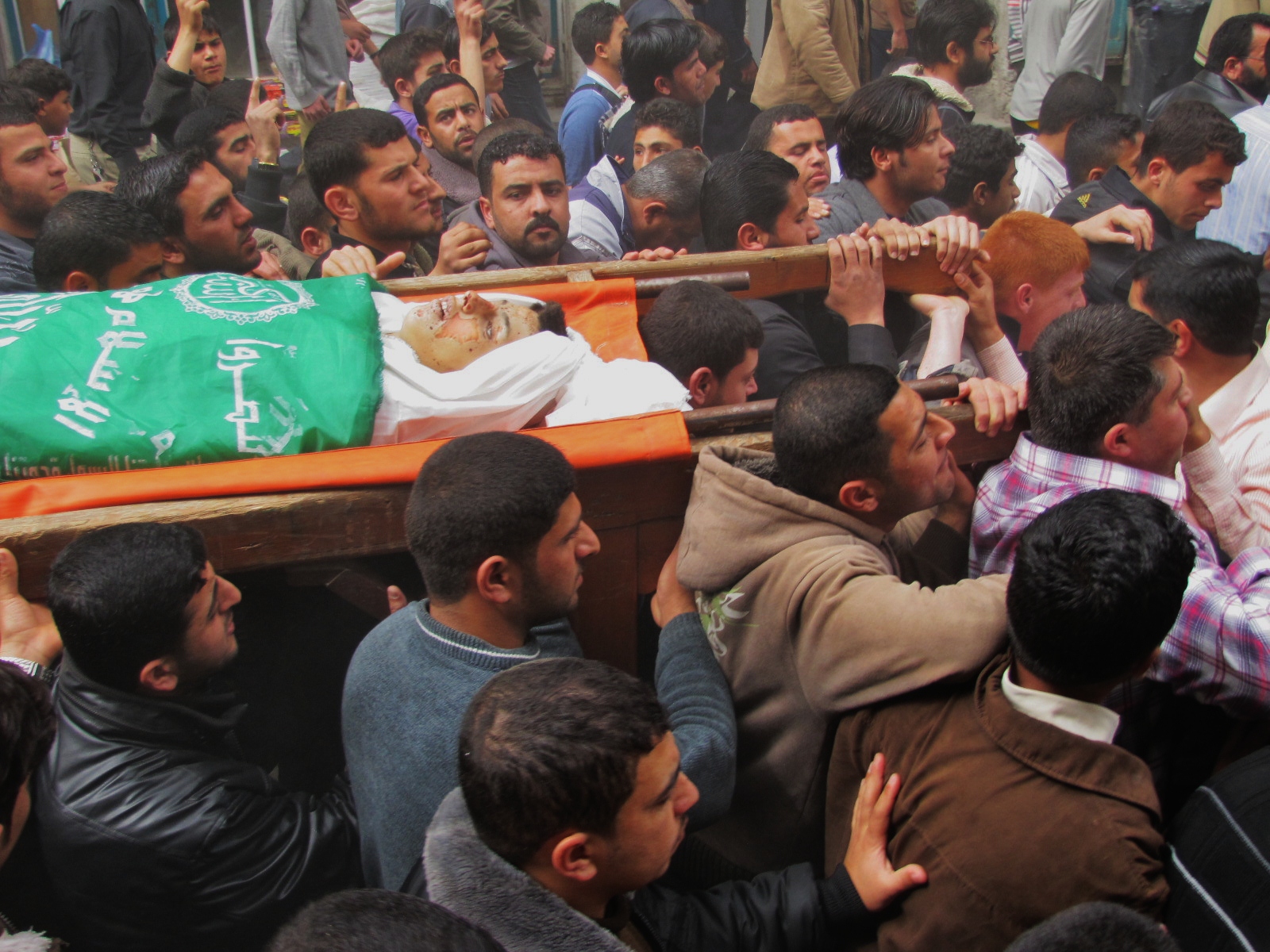Tag: Gaza
-
In memory of a hero: Rachel speaks truth
16 March 2012 | International Solidarity Movement On the anniversary of Rachel Corrie’s martyrdom today, the rain fell in quiet tears that watered Palestine in a confusing emotion of remorse and yet optimism—the same optimism we hear in the voice of Rachel’s diaries and actions. It rained on Kufr Qaddoum where attack dogs clenched in…
-
Casualties of the last attacks on Gaza: Visit to Shifa Hospital
by Rosa Schiano 15 March 2012 | il Blog di Oliva This morning we went to pay a visit to the wounded at the Shifa Hospital. Most of them have fractures and burns. Hani Al-Qanoo, 15 His mother, Reda, tells that on Sunday morning around 9am Hani and his brother went to school, but there were…
-
The mourning tent of a martyr
by Nathan Stuckey 14 March 2012 | International Solidarity Movement, Gaza Strip Nayif Qarmout was murdered yesterday; he was also buried yesterday, in a small cemetery in the heart of Jabalia, the refugee camp where he lived. He was only 14 years old. He was murdered by an Israeli missile while playing football with his…



